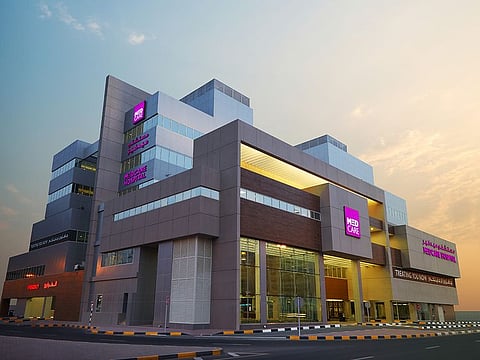Genetics and breast cancer risk
Insights from Angelina Jolie’s story

Highlight
Dr Soha Abdelbaky, Consultant Medical Oncology, Medcare Hospital Sharjah, talks about how genes are associated with the disease, genetic testing, and the far-reaching implications for patients and their families
In recent years, Hollywood actress and filmmaker Angelina Jolie opened up about her personal battle with breast cancer. Her journey took a significant turn in 2013 when she decided to undergo a preventive bilateral mastectomy after discovering a mutation in the BRCA1 gene. This particular genetic mutation put her at an 87 per cent lifetime risk of developing breast cancer and a 50 per cent risk of ovarian cancer. Jolie’s courageous choice to have a bilateral mastectomy not only transformed her life but also sparked a global conversation on breast cancer prevention and genetic testing. She has since become a passionate advocate for women facing a high risk of breast cancer.
Breast cancer is a widespread and deeply concerning issue for women worldwide. While numerous factors contribute to the risk of developing this disease, genetics plays a pivotal role in determining susceptibility. In this article, we will delve into the intricate relationship between genetics and breast cancer, exploring the genes associated with the disease, genetic testing, and the far-reaching implications for patients and their families.
While most breast cancers are not caused by inherited genes, about 5-10 per cent of cases are believed to be hereditary. The most well-known breast cancer-related genes are BRCA1 and BRCA2. These genes act as tumour suppressors, responsible for repairing damaged DNA. When they undergo mutation, they fail to fulfil this vital function, allowing DNA damage to potentially increase the risk of developing breast cancer.
BRCA1 mutations are associated with a 55-65 per cent lifetime risk of breast cancer, while BRCA2 mutations are associated with a 45 per cent lifetime risk. Additionally, these mutations also increase the risk of other cancers, such as ovarian, pancreatic, and prostate cancer.
Apart from BRCA1 and BRCA2, there are other genes that have been linked to breast cancer susceptibility, including TP53, PTEN, CDH1, and PALB2. Mutations in these genes are associated with varying levels of risk.
Genetic testing has become a valuable tool in assessing breast cancer risk, especially for those with a family history of the disease. It allows individuals to determine if they carry mutations in the known breast cancer-related genes. If a mutation is detected, patients can make well-informed decisions about their healthcare and proactively take steps to reduce their risk.
Genetic testing typically involves the analysis of a blood or saliva sample to identify specific genetic mutations. The results help healthcare providers to customise screening and prevention strategies for individuals at higher risk. For instance, those with BRCA mutations may opt for increased surveillance, prophylactic surgery, or chemoprevention measures to reduce their risk.
Discovering a genetic mutation linked to breast cancer can be both empowering and daunting for individuals and their families. On one hand, it offers a clear understanding of the risk, allowing individuals to take proactive measures. On the other hand, it may lead to emotional stress and difficult decisions regarding risk management, such as preventive surgeries or intense surveillance.
Genetic counselling is an essential aspect of genetic testing. Genetic counsellors provide information, support, and guidance to individuals and families, helping them navigate the complex landscape of hereditary breast cancer. They assist in interpreting test results, discussing the implications, and addressing emotional and psychological concerns.
— Dr Soha Abdelbaky is a highly skilled and experienced medical oncologist specialising in the treatment of various types of cancer, including breast cancer, gynecological tumors, lung cancer, gastrointestinal cancer, urological tumors, and hematological malignancies such as leukemia, lymphoma, and multiple myeloma.
— For more information and to book an appointment, call 800 6332273


